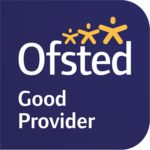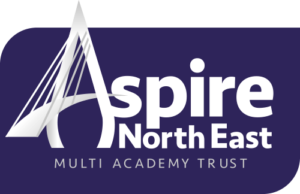Science Curriculum Overview
Knowledge Organisers
Curriculum Aim
Aim
Here at Southmoor Academy, we aim to securely equip all of our students for life beyond school as successful, confident, responsible and respectful citizens. We believe that education provides the key to social mobility and our curriculum is designed to build strong foundations in the knowledge, understanding and skills which lead to academic and personal success. We want our students to enjoy the challenges that learning offers.
Our aims are underpinned by a culture of high aspirations. Through developing positive relationships, we work towards every individual having a strong belief in their own abilities so that they work hard, build resilience and achieve their very best.
Curriculum Intent
Intent
We aim to provide a high-quality science education that provides the foundations for understanding the world through the disciplines of biology, chemistry and physics. Science is changing our lives and is vital to the world’s future prosperity, and all students should be taught essential aspects of foundational knowledge, methods, processes and uses of science. Through building up a body of core knowledge and concepts, pupils are encouraged to recognise the power of rational explanation and develop a sense of excitement and curiosity about natural phenomena. They will be encouraged to understand how science can be used to explain what is occurring, predict how things will behave, and analyse causes.
The curriculum aims to ensure that knowledge is taught to be remembered, not encountered. The curriculum embraces learning from cognitive science about memory, forgetting and the power of retrieval practice. Knowledge for each unit is planned vertically and horizontally, giving thought to the optimum knowledge sequence for building secure schema.
The curriculum aims for pupils to:
- Develop scientific knowledge through the disciplines of biology, chemistry and physics;
- Develop understanding of the nature, processes and methods of science through different types of scientific enquiry that help them answer scientific questions about the world around them;
- Develop and learn to apply observational, practical, modelling, enquiry, problem solving and mathematical skills, both in the laboratory, in the field and other environments;
- Develop their ability to evaluate claims based on science through critical analysis of the methodology, evidence and conclusions, both qualitatively and quantitatively.
Throughout our programmes of study, every attempt is made to make explicit links to careers and the world of work. In addition to subject specific links, we aim to explicitly reinforce the skills and aptitudes which support employers say are important in the workplace;
- Resilience (Aiming High Staying Positive Learning from Mistakes)
- Collaboration (Teamwork Leadership Communication)
- Creativity (Originality, Problem Solving, Independent Study)
The British values of democracy, the rule of law, individual liberty, and mutual respect of those with different faiths and beliefs are taught implicitly and reinforced in the way in which the school operates.
The British values of democracy, the rule of law, individual liberty, and mutual respect of those with different faiths and beliefs are taught explicitly and reinforced in the way in which the school operates.
Curriculum Sequence & Structure
Sequence and structure
Our curriculum is split in to Key Stage 3 (years 7, 8 and 9) and Key Stage 4 (years 10 and 11). Our longer school day and generous allocation of curriculum time ensures a strong foundation of knowledge and skills for success at KS4.
Brief Overview of Curriculum Content for Each Term
Autumn term Spring Term Summer Term Yr 7 -
The Skeletal and Muscular Systems
-
Cells and Organisation
-
Particle Model
-
Pure and Impure substances
-
Speed
- Gravity
-
Relationships in an Ecosystem
-
Reproduction
-
Acids and Alkalis
-
Metals and Non-Metals
-
Potential Difference and Resistance
-
Calculation of Fuel uses and Costs in the Domestic Context
-
Inheritance
-
Reproduction
-
Earth’s Structure
-
Beyond the Atmosphere
-
Sound
-
Light
Yr 8 -
Gas Exchange Systems
-
Nutrition and Digestion
-
Atoms, Elements and Compounds
-
The Periodic Table
-
Contact Forces
-
Pressure
-
Cellular Respiration
-
Photosynthesis
-
Types of Reaction
-
Chemical Energy
-
Magnetism
-
Energy Changes and Transfer
-
Inheritance
-
Genes
-
Climate
-
Earth’s Resources
-
Heating and Cooling
-
Wave Effects & Properties
Yr 9 -
Cells
- Skill Building
- Atoms & The Periodic Table
- Energy & Energy Resources
- Organisms
- Skill Building
- Chemical Bonding
- Electricity
- Revision Skills
- Practical Skills
- Electricity
Yr 10 - Infection & Response
- Bioenergetics
- Chemical Changes
- Quantitative Chemistry
- Electricity
- Particle Model of Matter
- Homeostasis & Response
- Energy Changes
- The Rate & Extent of Chemical Changes
- Atomic Structure
- Forces
- Inheritance
- Variation & Evolution
- Organic Chemistry
- Forces
- Waves
Yr 11 - Homeostasis & Response
- Inheritance, Valuation & Evolution
- The Rate & Extent of Chemical Changes
- Organic Chemistry
- Forces
- Waves
- Ecology
- Chemical Analysis & The Chemistry of the Atmosphere
- Chemistry Using Resources
- Magnetism & Electromagnetism
- Revision & Exam Techniques
-
Year 7 KS3 Curriculum
Year 8 KS3 Curriculum
Year 9 KS3 Curriculum
Year 10 KS4 Curriculum
Year 11 KS4 Curriculum
Year 12 & 13 KS5 Curriculum
How Our Curriculum Caters For SEND Students
How does our Curriculum cater for students with SEND?
Southmoor is an inclusive academy where every child is valued and respected. We are committed to the inclusion, progress and independence of all our students, including those with SEN. We work to support our students to make progress in their learning, their emotional and social development and their independence. We actively work to support the learning and needs of all members of our community.
A child or young person has SEN if they have a learning difficulty or disability which calls for special educational provision to be made that is additional to or different from that made generally for other children or young people of the same age. (CoP 2015, p16)
Teachers are responsible for the progress of ALL students in their class and high-quality teaching is carefully planned; this is the first step in supporting students who may have SEND. All students are challenged to do their very best and all students at the Academy are expected to make at least good progress.
Specific approaches which are used within the curriculum areas include.
Direct reference to strategies recommended in a pupil passport EHCP.
- Seating plans to allow inclusion
- Use of differentiation in lessons including challenge and support, differentiated tasks and differentiated reading materials.
- Where possible, use of additional support from adults is planned and communicated in advance.
- Intervention strategies are used when required.
- Written and verbal feedback to stretch and support pupil progress.
- Ensure all resources are accessible to all pupils
- Homework tasks to promote literacy and independent study.
- Use of data to support planning
- Group work
- Questioning and class discussion
How Our Curriculum Caters For Disadvantaged Students
How does our curriculum cater for disadvantaged students and those from minority groups?
As a school serving an area with high levels of deprivation, we work tirelessly to raise the attainment for all students and to close any gaps that exist due to social contexts. The deliberate allocation of funding and resources has ensured that attainment gaps are closing in our drive to ensure that all pupils are equally successful when they leave the Academy. More specifically within the teaching of Science, we:
- Provide targeted support for underperforming pupils;
- Use data to identify gaps and underperforming pupils;
- Discuss strategies and implement these in order to address pupils needs;
- Provide knowledge organisers for all pupils to support with essential, core, substantive knowledge;
- Ensure homework is accessible and where needed resources and support are provided outside of lesson time;
- Provide revision materials to pupils to reduce financial burdens on families.
- Purchase of online revision resources (Seneca Premium) and publication of all teaching resources on Teams.
- Provision of paper revision resources and booklets so that students who have poor attendance have access to core knowledge which has been delivered.
- Provision of paper revision resources and booklets so that students who have poor attendance have access to core knowledge which has been delivered.
How We Implement Our Curriculum Effectively
How do we make sure that our curriculum is implemented effectively?
The Science curriculum leader is responsible for designing the Science curriculum and monitoring implementation.
The subject leader’s monitoring is validated by senior leaders.
Staff have regular access to professional development/training to ensure that curriculum requirements are met.
Staff attend half termly ‘Trust Teams’ subject knowledge CPD.
Effective assessment informs staff about areas in which interventions are required. These interventions are delivered during curriculum time to enhance pupils’ capacity to access the full curriculum.
Curriculum resources are selected carefully and reviewed regularly.
Assessments are designed thoughtfully to assess student progress and also to shape future learning.
Consistency, accuracy and reliability of assessments are validated through standardisation, which is then quality assured by the Science curriculum leader.
Members of the department mark for the AQA, OCR and Edexcel exam boards and provide CPD to the rest of the department to improve reliability of data.
Gap analysis is used following summative assessments to inform subsequent teaching, identify gaps in knowledge and plan more specific, targeted intervention if required.
How We Ensure The Curriculum Has Impact
How do we make sure our curriculum is having the desired impact?
- Examination results analysis and evaluation, reported to the senior leaders and the local governing body to ensure challenge
- Termly assessments-analysis and evaluation meetings
- Lesson observations
- Learning walks
- Book scrutiny
- Regular feedback from Teaching Staff during department meetings
- Regular feedback from Middle Leaders during curriculum meetings
- Pupil surveys
- Parental feedback
- External reviews and evaluations
Additional Curriculum Resources & Information




